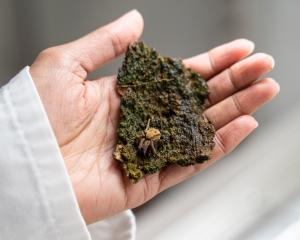
The Methven Birdsong Initiative is a two-phase project which is making steady progress on both fronts, spokesperson Mac McElwain said.
“I’m a bit impatient so things can never happen quickly enough but it’s not going to happen overnight.
“The whole thing has really picked up some momentum.”
The Methven Lions launched the project at the end of last year and already the trap library is building financial backing to begin removing predators from the area.

The vision is to create a native habitat on the vacant council-owned land behind the Garden of Harmony – an area of council land already turned into a planted area with walkways.
The Birdsong Initiative is waiting on the “statutory ducks to be in a row” before they can make a start, McElwain said.
The Methven Community Board and the Ashburton District Council are working on the birdsong initiative’s request for access to the land.
A report to the community board stated one of the leaseholders has agreed to temporary access for construction of the project and another has said they would surrender their lease in April 2025, as they have stock on the property.
Discussions are still to be held with the third lessee.
If they are granted access to the site, the birdsong initiative will be ready to make a start, McElwain said.
Earlier this year the community board granted $10,000 to help establish the trap library that will help households to trap pests and predators in their backyards.
They also went to the Ashburton Water Zone Committee seeking funding and received $7,306 to go towards planting the site.
The group also sought funding towards the trap library but it was suggested they could work with the Staveley Camp Forest community possum trap library which received $15,000 from the water zone earlier this year.
“The only barrier between the two trap libraries working together is distance,” Mcelwain said.
It was raised at the water zone committee meeting that there have been a number of trapping projects funded over the years and it could be a worthwhile exercise to see if those projects were still using the traps or if they could be redistributed.
By Jonathan Leask, Local Democracy Reporter
■ LDR is local body journalism co-funded by RNZ and NZ On Air.













